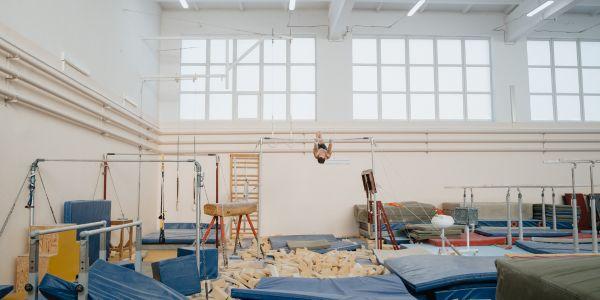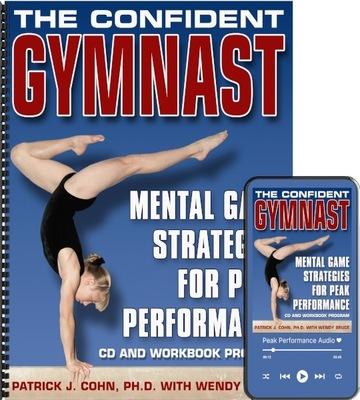
What are your biggest challenges when injured?
Pain, discomfort, and therapy are some of the physical challenges that injured gymnasts must face.
However, the mental aspects of injury, which are often ignored, can be overwhelming for an athlete.
Can you think of a time when you tweaked your ankle or experienced soreness in your knee that prevented you from fully participating in training sessions?
Did you fear you would fall behind in training? Were you frustrated and worried that all the progress you made in your skills and routine would be lost? Did you experience loneliness not being with your teammates every day?
The longer an injury keeps you away from gymnastics, the greater the mental and emotional challenges.
Mental aspects of injuries include:
- Negative impact on an athlete’s identity – Gymnasts primarily identify themselves by their sport. If you ask them to describe themselves, you most likely will hear them say, “I am a gymnast.” When you are no longer training or competing due to injury, your sense of self suffers a significant blow.
Expanding your identity beyond sport can lessen the impact that injury can have on your sense of self.
- Social isolation – Many gymnasts consider their teammates their sole social circle. When injured athletes are away from their team, they often feel lost, isolated, and down at a time when they need support most.
Staying in touch with your teammates, attending practices, and cheering for your friends during competitions will help you maintain healthy team bonds.
- Loss of training – Injured athletes often feel their skills and conditioning will regress to the point where they won’t be able to accomplish their seasonal goals. The lack of training can be a significant negative factor that depletes a gymnast’s confidence.
You may not be able to be a full participant in training sessions, but you can still find alternative ways to train physically and mentally.
- Fear of re-injury – Even when a gymnast physically recovers and is cleared to compete, the fear of re-injury is a daunting obstacle. Not only do fear and anxiety delay recovery, but excessive fear can increase the possibility of re-injury.
It is crucial for injured athletes to face their fears by talking to professionals who can help them through the injury process.
Suni Lee, the Tokyo 2020 Olympic all-around champion, has had her share of injuries. In 2020, Lee broke a bone in her left foot and injured her Achilles tendon, which sidelined her for four months. Fortunately, Lee recovered and won three Olympic medals at the Tokyo Games.
As Lee was preparing for the 2024 Olympic Games in Paris, she was diagnosed with an unspecified rare kidney condition in March 2023. Lee’s health issues ended her sophomore season at Auburn University and interrupted her Olympic training.
Lee commented about how mentally challenging her health issues have been over the last 12 months and her attempt to get back on track.
LEE: “I had kind of a rough patch, and I was in and out of the gym for about five months. It was more just mental, but also trying to figure out my health and just be as healthy as possible coming into the new year because I knew I wanted to not have to worry about it as much.”
The best approach to athletic injuries is to face mental challenges as well as physical. The mental skills you learn to deal with injuries can be advantageous to launch you to the next level in your sport.
Reach out for help. Learning how to deal with adversity is a skill that can help you become a mentally tougher athlete and is applicable to every area of life.
Related Articles:
- How to Overcome Mental Challenges in Gymnastics
- How to Reignite Your Enthusiasm for Gymnastics
- How to Embrace a Competitive Mindset for Gymnastics Meets
*Subscribe to The Sports Psychology Podcast on iTunes
*Subscribe to The Sports Psychology Podcast on Spotify
Learn Mental Game Secrets to Unstoppable Confidence in Gymnastics!

Are you ready to improve your mental toughness and perform with ultimate self-confidence in competition?
Check out The Confident Gymnast Program!
The Confident Gymnast Workbook Program was developed not only by Dr. Cohn, but with the assistance of former gymnast Olympian Wendy Bruce.
The Confident Gymnast is ideal for any competitive gymnast. But not only do gymnasts benefit from the program, coaches and parents do as well!
- Gymnasts: Get the mental edge by learning how to take control of their confidence, mentally prepare for competition, and preform with composure under pressure
- Parents: Help boost your athletes’ performance. Don’t let their mind hold them back any longer!
- Coaches: Boost your gymnasts’ confidence using simple, proven mental strategies.
- Mental Coaches: Learn a proven system for helping your athletes boost mental toughness.
